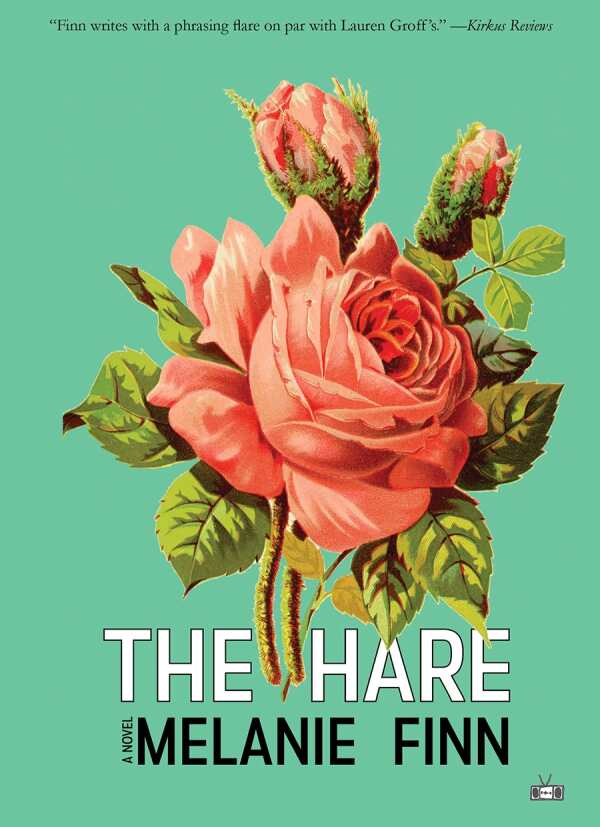
The Hare
Melanie Finn’s novel The Hare interrogates the complicated, often messy aesthetics of modern womanhood.
Rosie is guileless, yearning, and eighteen when she submits a delicate self-portrait as part of a lark application to Parsons; because Parsons cannot “appreciate Rosie’s complete lack of irony,” she is admitted on scholarship. This luck helps her to escape her grandmother’s boarding house, but releases her to drift in New York City instead.
In New York, wandering the galleries of MoMA in search of her artistic voice, Rosie becomes the perfect bait for Bennett: older, from old money, and dedicated to his grifts. Bound by the shared secret of a shape they hit on a dark highway and by a baby that neither anticipated, Bennett and Rosie spiral into increasingly perilous situations. She winds up in an unheated Vermont hovel, without money or survival skills, but with a kind neighbor, Billy, to help her earn both; he ends up in prison.
Though the novel situates itself in domains considered to be the exclusive space of WASPy men, it is entirely about Rosie: the abuses that shaped her, the hunger she cannot sate, her need to belong, and her slow self-realization. The girl who was too crippled by doubt to make art becomes a woman who provides for herself from the larder of the land, who raises a child on her own, and who is capable of brutal self-defense; her transformation is moving. Still, some of Rosie’s later conflicts are gratuitous ancillaries to her story, present most to force Rosie to opine on social topics; in particular, her initially resentful reaction toward a transwoman weighs down her otherwise buoyant pursuit of self.
The Hare is a bold and authentic novel concerned with the time-consuming, socially defiant, and brutal work of women’s self-actualization.
Reviewed by
Michelle Anne Schingler
Disclosure: This article is not an endorsement, but a review. The publisher of this book provided free copies of the book to have their book reviewed by a professional reviewer. No fee was paid by the publisher for this review. Foreword Reviews only recommends books that we love. Foreword Magazine, Inc. is disclosing this in accordance with the Federal Trade Commission’s 16 CFR, Part 255.
